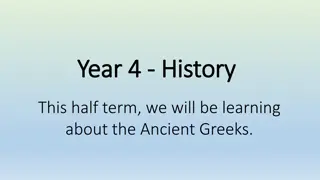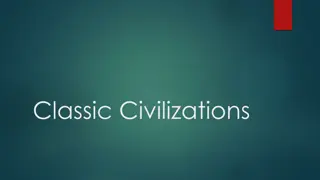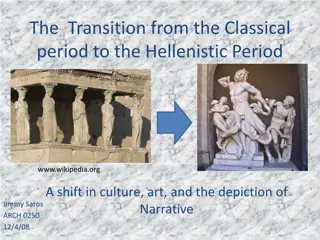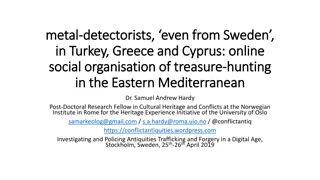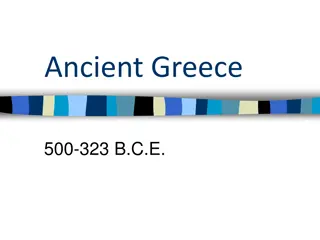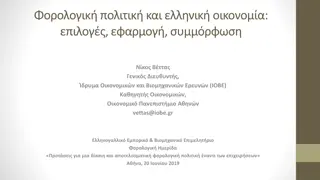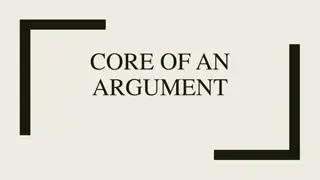
Classical Greece: Polis, Government, Wars, and Legacy
Explore Classical Greece, including the structure of polis with agora and acropolis, various forms of government like democracy in Athens and oligarchy in Sparta, the conflict between Athens and Sparta, the significance of Greek hoplite and phalanx in warfare, the Persian Wars, Peloponnesian Wars, and the impact of military general Philip II on Hellenism.
Download Presentation

Please find below an Image/Link to download the presentation.
The content on the website is provided AS IS for your information and personal use only. It may not be sold, licensed, or shared on other websites without obtaining consent from the author. If you encounter any issues during the download, it is possible that the publisher has removed the file from their server.
You are allowed to download the files provided on this website for personal or commercial use, subject to the condition that they are used lawfully. All files are the property of their respective owners.
The content on the website is provided AS IS for your information and personal use only. It may not be sold, licensed, or shared on other websites without obtaining consent from the author.
E N D
Presentation Transcript
The Polis Each polis had an agora (market place) and acropolis (fortified citadel)
Forms of Government Many different types (monarchy, aristocracy, oligarchy, tyrant, etc.) Athens = Democracy Draco, Solon, Cleisthenes Sparta = Oligarchy 2 kings, 5 elected officials (ephors), Council, Assembly
Athens vs. Sparta Athens Large Population Citizen, aliens, slaves Democracy Women = property Male education important Civic duty Navy Sparta Small population Citizens, neighbors, helots Oligarchy Women = almost same power men Male, Female Education Important Obey, endure Military
Persian Wars Greece vs. Persia 3 Main Stages/Battles Battle Marathon Battle Thermopoylae Battle Salamis Outcome: Persia never attacked Greece again Golden Age Athens
Peloponnesian Wars Fast Facts Source of information - Thucydides This day will be the beginning of great evils for the Greeks. Greeks called the war b/w Peloponnesians and Athenians Lasted 27 years Fighting ranged across Greek world At wars end, Golden Age of Greece over
According to Thucydides Spartan fear of the growth of Athenian Power Big Idea: War of Opposing Ideologies This day will be the beginning of great evils for the Greeks. Ended greatness Greece
Arguably one of the greatest military generals of all time Father Philip II Improved Phalanx Created vast Empire Ionian Sea to Himalaya Mts. Responsible for preservation and diffusion of Hellenism




